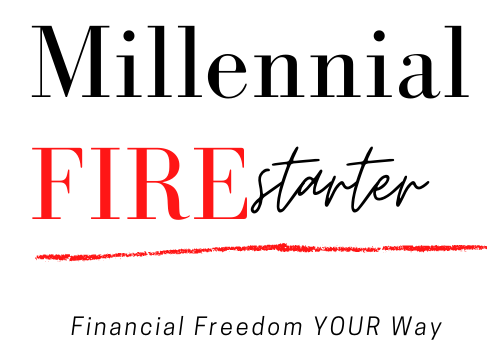
Do you need to write a cover letter but are unsure of where to begin? These are some great tips whether you are a seasoned professional or a student looking for a college internship! This post will cover the general format of writing a cover letter and when it is appropriate to send one.
Since cover letters and resumes are read by a computer before they even reach human eyes in many companies, it is important to use strong keywords. Read over the job description and research the company to see what types of things they are looking for in a candidate. If you know someone who works at the organization, reach out to them to get an idea of what they value.
I may earn a small commission for affiliate links in this post at no extra cost to you. Please read my disclaimer for more information.
When it is appropriate to submit a cover letter?
If you are someone who is applying to lots of jobs every day, you aren’t going to have time to customize a cover letter for each one. In some cases, having a very generic cover letter may do more harm than good.
I would recommend writing a cover letter in the following cases:
- If it is required or encouraged
- The position is at the top of your list of potential options
- If you are applying at a small organization
Writing a cover letter gives an employer insight on why you are applying to that job. It shows initiative and that you are taking the opportunity seriously. Hiring managers know that people don’t submit cover letters for most jobs. Writing a cover letter will set you apart from other candidates.
How seriously do employers take cover letters?
To be honest, this will really depend on the company you are applying to. The average amount of time that an employer reviews an individual resume is 7 seconds so it is important to make it as compelling as possible. However, since so little time is spent on a resume what amount of time can be expected for a cover letter?
I’m not going to lie to you, I have received jobs without writing a cover letter. However, I believe that the cover letter was unnecessary because I had strong references and people that could vouch for my work. There were also a lot of cases where employers had no option to include a resume because they weren’t going to read it anyway! I’m not trying to discourage you from writing a cover letter. However, it is important to know your audience. If you are applying to a company that will not value you submitting a cover letter, don’t waste the time or effort in writing one!
If you are looking to join an organization with people who don’t know you or your work, you will need to prove your aptitude as well as your ability to be a good fit for the company. A cover letter gives you the opportunity to show the hiring manager who you are on a personal level while explaining why you are a good fit for the role. It shows a side that will not come across in a resume.
How long should a cover letter be?
You don’t want your cover letter to be too long or else it won’t be read. It also shouldn’t be too short or else it will look like you didn’t put in any effort. I recommend a four paragraph letter. This allows you to have an intro, two body paragraphs, and a conclusion paragraph.
Make sure to use strong introductory and conclusion sentences. This will make it easier for someone to scan your letter for the main points. It will also highlight your ability to communicate effectively.
A cover letter serves a different purpose than a resume
Resumes are very straightforward and simply display your experience and qualifications. The purpose of a cover letter is to show your intent, interest in the role, and details on why you are qualified.
Do not ever have a static cover letter. If you send a generic cover letter with each application, you are better off not including one at all. Employers will know that there is nothing unique about your letter and may come across negatively to hiring managers. Employers want potential employees who are aware of what their company stands for or at least has a willingness to learn. If you send a generic cover letter it can come across as you not having initiative.
How to format a cover letter
Your cover letters should have a consistent format, but the letter for each position should not be the same.
In the opening paragraph, state the position you are applying for and where you found the job opening. This can be from a job board or directly from the company website. From here you should provide a brief description of why you are qualified for the role.
For example you could say, “I believe that my management expertise and experience with auditing make me a good candidate for this role.” The points that you make in this sentences should be the basis in which you show your qualifications throughout the two body paragraphs. Think of a cover letter as a thesis paper and why you are qualified for the job is the main idea you are always referring back to.
What compelled you to apply for a job at this company? What do you bring to the table that aligns with the company’s mission? Provide examples of success that align with the job description. These are things that you should elaborate on in the two body paragraphs of your letter.
The conclusion paragraph should reiterate the position you are applying for along with your contact information (phone/email). Thank them for considering you for the opportunity and end the letter with a salutation.
Key Takeaways
If you are applying to a ton of applications on a regular basis, understand what makes sense for your situation. If the job application requires a cover letter, take the time to write a good one. For applications where cover letters are not required, use your discretion on whether it would be appropriate or not to forgo sending one. With the mass volume of resumes large employers get, cover letters are often only used for final candidates.
If you are applying to a small organization, I highly recommend you submit a cover letter since the team is small and they will want to get a better understanding of who you are and what you are looking for. In small organizations you may need to be willing to wear different hats so let your skills and experience that go beyond your prior job titles shine through.
Come up with at least two main points for why you are a good fit for the job. Include these points in your introductory paragraph and continue to refer back to them in throughout the rest of the letter.
Disclaimer: This content is for informational and educational purposes. For more details please visit the Disclaimer Page.














